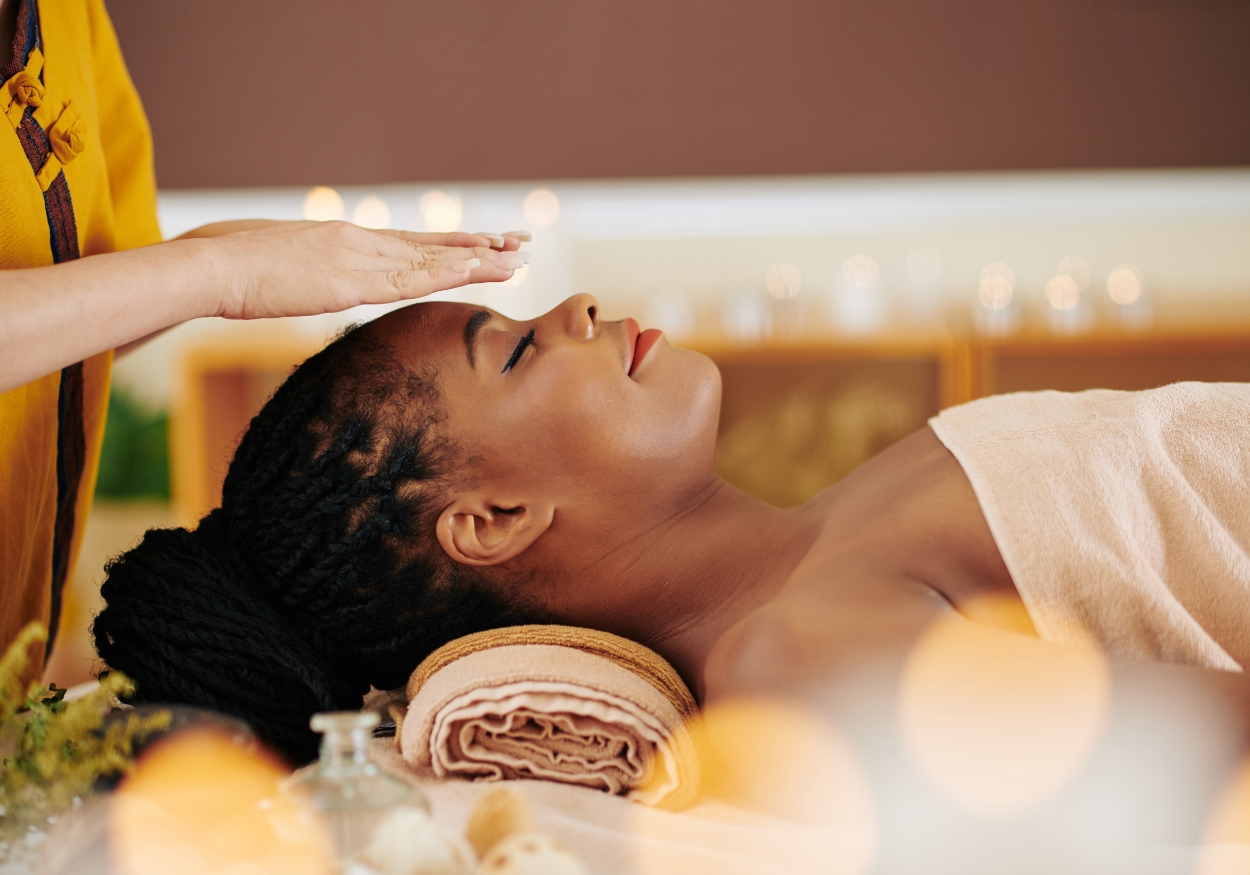Looking for a natural way to improve your wellbeing and feel more balanced? Reiki, an ancient Japanese healing technique, might be for you.
Here’s an introduction to Reiki for those of you who are interested…
What is Reiki?
Reiki is a form of alternative healing that originated in Japan in the early 20th century. It is based on the principle of channelling universal life force energy, known as “Ki” or “Qi,” through the hands of a trained practitioner.
The word “Reiki” is a combination of two Japanese words: “rei,” which means “God’s wisdom,” or “the higher power,” and “ki,” which means “life force energy,” according to the International Center for Reiki Training.
One theory behind Reiki is that interactions between the energy field (also known as the “biofield”) of the practitioner and the energy field of the recipient trigger the healing effects, according to a review.
Reiki aims to promote relaxation, reduce stress, and facilitate healing on physical, emotional, and spiritual levels. It can help shift your body’s stress response from its ‘fight or flight’ state to a more restful state.
What are the benefits of reiki?
Emotional Healing
Reiki is wonderful at aiding in emotional release, helping individuals cope with past traumas and emotional imbalances.
Reduces stress
Reiki can help to calm the mind, soothe anxiety, and relieve tension, leading to a greater sense of peace and relaxation. A 2017 review published in the journal “Frontiers in Psychology” found that Reiki may help reduce stress, anxiety, and depression.
It may improve sleep
Many Reiki recipients report experiencing better sleep patterns and improved quality of rest.
Can help ease pain
Reiki may assist in alleviating discomfort by promoting the body’s natural healing response.
Overall, it can enhance your wellbeing
Regular Reiki sessions are believed to support the body’s natural ability to heal itself and maintain balance.
How does it work?
Reiki is gently and non invasive, so would be safe for everyone.
During a Reiki session, the practitioner places their hands gently on or just above the body in specific positions. The energy flows through the practitioner’s hands to the recipient, promoting relaxation and harmony.
A session typically lasts from 30 to 60 minutes, and the recipient remains fully clothed.
Where to get treatment
If you are interested in exploring reiki further, seek out a certified Reiki practitioner. They will ensure a safe and effective healing process.
Although there is research into reiki’s healing effects, further research is needed to fully understand Reiki’s mechanisms and its effectiveness in treating various conditions. It is not a medical treatment and should not be used in place of a medical treatment, but it can compliment conventional therapies by promoting relaxation and overall wellbeing.
Reiki is a personal journey and therefore, the effects can vary person to person. Approach this with an open mind to embrace the potential for something wonderful. It can help you cultivate a deeper connection between your mind, body and spirit and this can lead to a more balanced and harmonious life.
Sources:
Lee, M. S., Pittler, M. H., & Ernst, E. (2008). Effects of reiki in clinical practice: a systematic review of randomised clinical trials. International Journal of Clinical Practice, 62(6), 947-954.
Jain, S., Mills, P. J., von Känel, R., Hong, S., Dimsdale, J. E. (2007). Brief report: effect of reiki on heart rate variability in asymptomatic individuals over the age of 55 years. Journal of Alternative and Complementary Medicine, 13(6), 651-653.
Shore, A. G. (2004). Long-term effects of energetic healing on symptoms of psychological depression and self-perceived stress. Alternative Therapies in Health and Medicine, 10(3), 42-48.









Leave A Comment